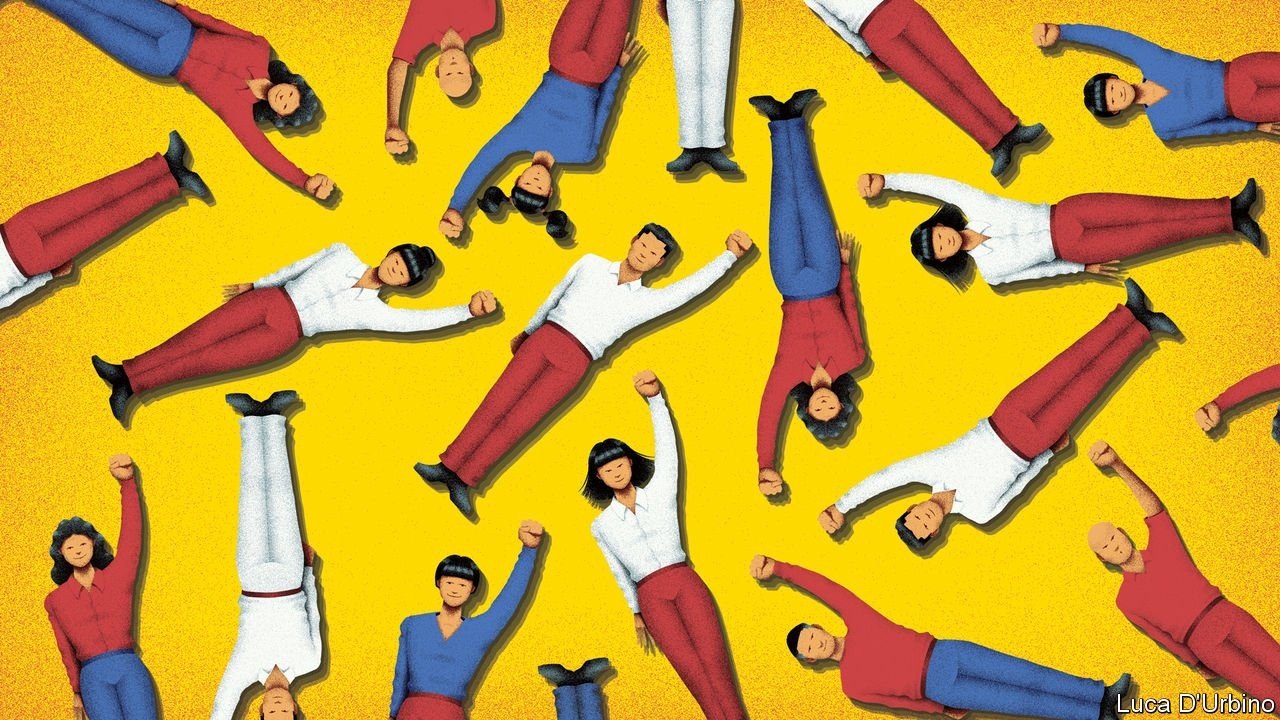China urges its people to struggle. Some say no
T WO VEGETARIAN meals each day. A monthly budget of 200 yuan ($30). Working just one or two months a year. In April an internet user posted this brief description of his simple, stress-free life. He described his philosophy as tangping, or “lying flat”. “I can be like Diogenes, who slept in his wine cask in the sun,” he wrote. He included a photo of himself doing an appropriate job: playing a corpse in a film.
Listen to this story Your browser does not support the
The post went viral. On social media, people showed their approval of tangping by sharing pictures of themselves (and, often, their cats) lying in bed. More than 60% of over 240,000 respondents to a poll on Weibo, a Twitter-like platform, said tangping was their idea of the good life. On the site, messages with the hashtag “illustrations of young people lying flat at home” have attracted about 200m views.
Tangping describes a longing to escape the pressures of modern life in China, where young people are expected to work long hours, buy property, get married and have children. Many people in their 20s and 30s grumble that hard work no longer rewards them with a better quality of life. They have adopted an academic term, neijuan or “involution”, to describe how extra input no longer yields more output. Unlike their parents, who enjoyed a booming economy, they feel that society is stagnating and inequality growing.
Other ways of expressing this mood have also become common. One is sang, or “dejected”: many young people now talk of the spread of a “sang culture” in China. They refer to “Buddhist youth”, meaning those who are never disappointed since they want nothing. Some young Chinese call themselves chives, harvested or exploited by the government and firms. As they point out online, it is difficult to harvest chives when they are lying flat.
Such ideas are at odds with the Communist Party’s rhetoric. Its leader, Xi Jinping, likes the word “struggle”. In 2019 an official summary of a speech he gave to young officials included more than 50 mentions of it. Struggle is an art, he told them. “We must be good at struggle.” Tangping, therefore, conveys a whiff of dissent. It hints at rejection of a political culture that encourages people to throw their all into work, for the good of the country. A popular online comment suggested that tangping had come to mean opting out, with defiance: “Lying flat is standing up, horizontally. Lying flat is having a backbone.”












